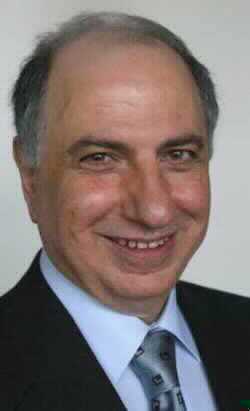HIGHLIGHTS: Policy of Containing Saddam Hussein Not Working: Rumsfeld||Cheney to Address Opposition Gathering through Video Link||Opposition Leader Proposes Targeted Approach Toppling Saddam Hussein||Schroeder Rules out German Participation in Iraq Attack||Britain Warns Washington against Iraq Attack||Amr Moussa Says Attack Would Generate Chaos in International Relations|| STORY: The leaders of the six main Iraqi opposition groups are beginning talks in Washington to discuss ways of bringing down President Saddam Hussein.
They are meeting senior US defence and State Department officials to look at scenarios for toppling Saddam and the subsequent political framework of Iraq.
The talks came as US Defence Secretary Donald Rumsfeld said the policy of containing Saddam Hussein had failed to stop him developing weapons of mass destruction.
"There is no way any reasonable person could look at that record and say it has worked," he said. "It hasn't worked and it is not working."
Mr Rumsfeld's comments came after a senior Republican congressman said that America should not attack Iraq as long as Saddam Hussein remains within his own borders.
Dick Armey, the majority leader of the House of Representatives and a senior member of President Bush's Republican Party, warned against any action without what he called "proper provocation".
He said that Iraq's refusal to allow in UN weapons inspectors was not a good enough reason.
TARGETED APPROACH TO TOPPLING SADDAM HUSSEIN RECOMMENDED
The Washington meeting is the first time that US President George W Bush has invited the leaders of all the groups for talks together.
Observers say it marks a significant change in policy as in the past the US has had doubts about the Iraqi opposition's credibility.
In a further endorsement, US Vice-President Dick Cheney is due to address the Iraqi National Congress (INC) representatives by video link on Saturday.
Speaking before Friday's meeting, a senior Iraqi representative said the opposition was united and ready.
INC spokesman Sharif Ali bin Hussein told the a news agency that extended military action against Saddam will not be needed because his army will not fight.
He said many commanders in the Republican Guard had indicated that they would not fight.
"This was put to the test in 1991 where hardly any units fought against the allied troops," he said.
The INC has called on the US to adopt a targeted approach to toppling the Iraqi leader.
"Our message is that the military, the Republican Guard, and the Iraqi people are all willing to take on Saddam," Mr Hussein said.
In any attack, US forces should concentrate on Saddam Hussein's command and control, as well as Saddam himself and his colleagues, rather than massively targeting military objectives and Iraq's infrastructure, he added.
SCHROEDER RULES OUT GERMANY JOINING IRAQ ATTACK
In Berlin, Chancellor Gerhard Schroeder, a key US ally, ruled out Germany participating in a possible US-led attack on Iraq, in an interview on public television.
"I think that if there is military intervention, we should be cautious. That means that Germany will not take part," in any US-led action against Iraq, Schroeder told the ARD station on Friday.
Schroeder said Germany was, after the United States, the largest contributor of troops in international operations, providing "more than any other European state."
Germany has about 60,000 soldiers assigned to or tied up in missions outside the country, the armed forces, the Bundeswehr, said.
"Therefore the limit has been reached in what can reasonably be expected from us," Schroeder said.
BRITAIN WARNS U.S. AGAINST ATTACKING IRAQ
In Britiain, ministers and government officials have strongly advised the United States against attacking Iraq, warning that such action would intensify conflicts in the region, The Independent newspaper reported, quoting senior defence and diplomats.
The warning came as The Times reported that British Prime Minister Tony Blair faced increasing pressure from his own Labour Party and trade unions not to back any US strike.
According to The Independent on Friday, British ministers and government officials have warned Washington that launching a war to topple Iraqi leader Saddam Hussein would "contaminate" crises in Afghanistan, Israel and Kashmir.
ARAB LEAGUE CHIEF SAYS ATTACK AGAINST IRAQ WOULD SPARK WORLDWIDE DISARRAY
In Cairo, Arab League chief Amr Mussa warned that a unilateral US strike on Iraq would result in "chaos in international relations."
"There is an international consensus to reject a military strike against Iraq," Mussa told Egypt's MENA news agency while on an official visit to Austria.
"This dangerous act should not result from the desire of one nation or even several," he said.
"Targeting Iraq in a military action will lead to chaos in international relations
PHOTO CAPTION
Ahmed Chalabi of the London-based Iraqi National Congress (INC) is seen in Berlin, March 7, 2002. Chalabi and other opposition leaders were due to meet with senior U.S. officials August 9 to bring their case for the ouster of Iraq's Saddam Hussein. (Wolfgang Rattay/Reuters)
- Author:
& News Agencies - Section:
WORLD HEADLINES


 Home
Home Discover Islam
Discover Islam Quran Recitations
Quran Recitations Lectures
Lectures
 Fatwa
Fatwa Articles
Articles Fiqh
Fiqh E-Books
E-Books Boys & Girls
Boys & Girls  Hajj Rulings
Hajj Rulings Hajj Fatwas
Hajj Fatwas














